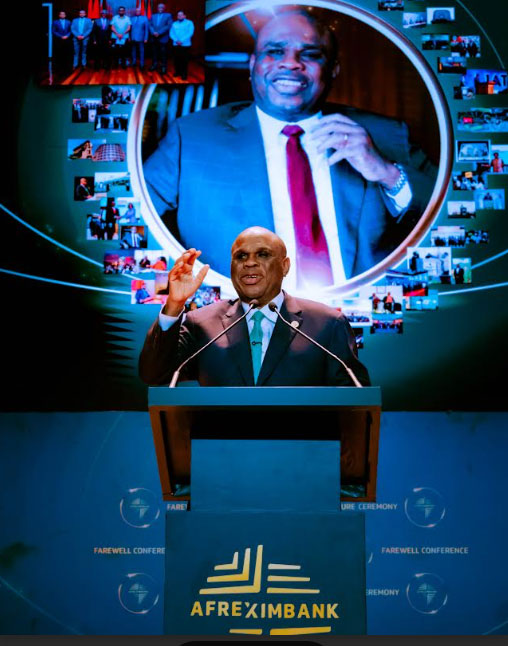Copyright cde

Reading Time: 6 minutes Next year, Malta will open the doors to a brand-new museum, giving a permanent home to its priceless collection of Flemish tapestries, donated to the island in 1702. Today, these masterpieces are among the country’s most closely guarded treasures. “This will be a momentous occasion, one to which Malta should invite all the EU Heads of State, as a reminder of what the country is capable of offering,” says JOSEPH ZAMMIT TABONA, Chairperson of the Malta Financial Services Advisory Council (MFSAC). As uncanny as it may seem, the analogy between historic tapestries and Malta’s financial services could not be avoided during an interview about the country’s strategy to make the sector more attractive and competitive. The MFSAC was established in 2021 to oversee and implement a long-term plan for Malta’s financial services sector. From 175 original action points, the strategy was eventually streamlined to 76 projects covering both vertical and horizontal areas of the industry. These are now in full implementation mode. “The Council convenes around 30 people every two months to monitor progress. Two and a half years later, 29 projects are complete, many more are underway, and overall progress stands at close to 70%,” says Mr Zammit Tabona. For him, this is already a big achievement, but more satisfying is that behind this progress is the work of many professionals. “There are 15 working groups representing different sectors and countless other professionals weaving their knowledge and experience together with one common mission: to present Malta’s unique tapestry of financial services to create a competitive edge relative to other leading jurisdictions.” “The various stakeholders from different industries are all doing an amazing job, lending a lot of their time and experience to a cause that we all believe in. This collective spirit is what is truly needed.” An accountant by profession, Mr Zammit Tabona began his career in the late 1960s. He has seen the sector change profoundly, even since the first draft of the strategy. “A case in point is AI, which has now been assigned to a separate working group and will serve as a horizontal enabler over the next three years.” Among the emerging opportunities, he highlights Family Offices and Aircraft Leasing. “ Singapore invested millions to tap into this market, and today it has well over 2,000 family office operators, up from 400 in 2020. There is currently a massive inter-generational wealth transfer and, as a result, high net worth individuals are managing their wealth moreeffectively. Malta is very well positioned to attract this business – just look at the number of super-yachts registered in Malta. We already have a number of very discrete Family Offices located here and this gives us a very good opportunity to attract more of this business.” The aircraft leasing sector is also growing rapidly. “Some of the larger legal firms have been taking on significant outsourced work from abroad, and this is helping us build valuable knowledge and experience in this sector. We are hopeful that the legislation for this sector will be finalised by the end of the year.” Attracting and retaining the right talent is central to the MFSAC strategy and to growing the sector. Numerous factors are impacting the challenges of attracting the right qualified talent – low birth rates, high economic growth and low unemployment all mean that there is never enough talent to meet demand. “It is very easy to say, ‘we need to start reducing foreign workers’, but the reality tells us otherwise. The economic activity we’ve seen in recent years would have never been possible without foreign talent,” he stresses. According to him, many jobs available to Maltese workers remain unwanted and unfilled. “When people became a bit wealthier, many chose to invest in property and continue generating income that way. It was the more comfortable option. But people need to become hungry again. There is a lot of talk about sustainability, and rightly so. But we also need to chase another kind of sustainability – one where the economy rewards those who work harder and think bigger.” To address the skills gap, the Council is conducting a study with Identità Malta, the National Skills Council and the Malta Institute of Accountants to identify sectors most in need of talent. “This will greatly shape the HR and education horizontals identified in the MFSAC strategy,” he notes. Calls have also been made for greater EU backing for Malta’s research and innovation efforts. Could Malta strengthen its innovation ecosystem? Mr Zammit Tabona believes it must. “Most start-ups in Malta are foreign-owned. They may come here for the language, incentives, weather or lifestyle. But they rarely stay, and when they leave, we lose them for good. We need to take care of them and find ways to entice them to remain. Malta Enterprise could be a catalyst by creating special hubs where start-ups collaborate more closely and become a reference point for local entrepreneurs to join the ecosystem.” “There is a lot of brainpower in Malta and much of our success stems from our resourcefulness. But to stay ahead, we need to remain innovative.” Three years into the strategy, is there a risk of slowing down? “There is a lot more work to be done. In March of next year, we plan to revisit the strategy to ensure it reflects today’s challenges. This will give us a renewed sense of purpose and reconfirm our collective vision and ambition.” He points to Malta’s recovery from the FATF greylisting episode as proof of resilience. “Since then, we have shown how the country can bounce back. The implementation of the MFSAC strategy is not just on paper. We look at the facts, and Malta’s performance shows we are on the right track,” he says, citing a recent fDi Intelligence index that placed Malta in 33rd position, up from 50th the previous year. For Mr Zammit Tabona, the next step is to tell Malta’s story more effectively. “We need to keep up the investment in foreign participation, meetings and networking events. The more we communicate our achievements, the more people will realise our country’s potential.” And, he adds, just as Malta’s restored Flemish tapestries will soon take their place in their new museum, “so will our financial sector shine again.” READ THE 28TH EDITION OF THE CORPORATE TIMES



